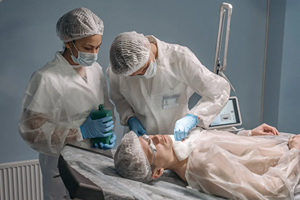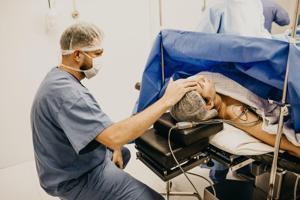Introduction to Medical Malpractice
Medical malpractice refers https://jokolyn70.gumroad.com/p/challenges-and-opportunities-in-pursuing-medical-malpractice-claims to a situation where a healthcare professional deviates from the standards of their profession, leading to harm or injury to a patient. Such cases can arise from various factors, including negligence, misdiagnosis, surgical errors, and inappropriate treatment. Given the complexity of medical malpractice cases, expert witnesses play a crucial role in determining the outcome of trials.

Understanding Expert Witnesses
Expert witnesses are specialists in a particular field who provide their opinion based on their expertise during legal proceedings. In the context of medical malpractice trials, these individuals are typically healthcare professionals who can validate the claim regarding the standard of care provided to the patient.
Types of Expert Witnesses in Medical Malpractice Cases
There are generally two types of expert witnesses involved in medical malpractice cases: treating experts and credentialed experts.
- Treating Experts: These are the healthcare providers who managed the patient's care. They offer insights about the treatments administered, the patient's condition, and the decisions made during the care process. Credentialed Experts: These professionals might not have treated the patient, but they have extensive knowledge in the relevant medical field. They can provide testimony regarding the accepted standards of care and whether the defendant’s actions fell short of these standards.
Responsibilities of Expert Witnesses
Expert witnesses have several key responsibilities in medical malpractice trials:
- Establishing Standard of Care: One of the primary roles of an expert witness is to define the standard of care that is widely accepted in the relevant medical community. This definition is crucial, as it serves as the benchmark against which the defendant's actions are measured. Providing Objective Analysis: Experts are expected to provide unbiased and objective analyses of the facts. Their testimony should be grounded in evidence and professional knowledge, rather than personal opinions or biases. Enhancing the Jury's Understanding: Medical terminology and practices can be complex. Expert witnesses help simplify these concepts, aiding jurors in understanding the nuances of the case. Assessing Causation: In addition to discussing standards of care, expert witnesses may also be required to determine if the alleged negligent actions directly caused the patient's injury.
The Importance of Expert Witnesses in Trials
Building Credibility
Expert witnesses lend credibility to medical malpractice cases. Their insights and facts can substantiate the claims made by the plaintiff or the defense, thus influencing the jury's perceptions.
Clarifying Medical Complexities
Medical cases often involve intricate medical knowledge that laypersons struggle to comprehend. Expert witnesses can break down complicated medical jargon into terms that jurors can grasp, making the evidence more accessible and understandable.

Challenges Facing Expert Witnesses
While expert witnesses play a critical role in medical malpractice trials, they also face numerous challenges:
- Bias and Objectivity: Experts may unintentionally display bias, particularly if they have a personal connection to the case or if they have been hired by one side. Maintaining objectivity is paramount for their testimonies. Cross-Examination: Expert witnesses must prepare for rigorous cross-examinations aimed at discrediting their qualifications, opinions, or methodologies. A skilled attorney can challenge their credibility effectively. Staying Current: The medical field is constantly evolving. Expert witnesses need to stay updated with the latest research, technologies, and practices to provide relevant testimony during trials.
Selecting the Right Expert Witness
Choosing the appropriate expert witness can greatly influence the outcome of a medical malpractice case. Here are some factors to consider:
- Qualifications: The expert's credentials should align with the specifics of the case at hand. Considering their education, certifications, and professional experience in the relevant specialty is crucial. Reputation: An expert's reputation within the medical community can impact their effectiveness in court. Researching their history, including publications and past testimonies, is essential. Communication Skills: The ability to convey complex medical concepts clearly to a jury is indispensable. This aspect can sometimes be overlooked but is critical for the expert’s contribution to the trial.

Conclusion
In summary, expert witnesses are essential components of medical malpractice trials. They help shape the understanding of complex medical issues, establish standard of care, and provide objective analyses necessary for the jury's decision-making process. Despite the challenges they face, the right expert witness can significantly impact the proceedings and ultimately influence the outcome of the case. Moving forward, both plaintiffs and defendants must recognize the importance of selecting competent expert witnesses to effectively advocate for their positions in medical malpractice litigation.